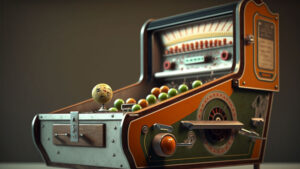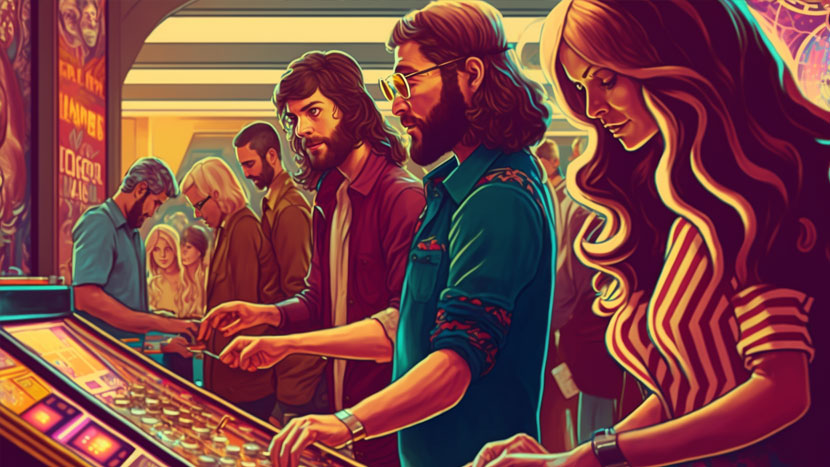The pinball machine has a rich history that dates back to the 18th century. The origins of pinball can be traced back to the game of billiards, which was popular in Europe during the 1700s. In the 1800s, a game called Bagatelle became popular in France. This game involved using a stick to hit balls into holes on a board. It was the precursor to the modern pinball machine.
The first pinball machines were made in the 1870s and were essentially Bagatelle games with the addition of a spring-loaded plunger to launch the ball onto the playing field. These early machines were entirely mechanical and had no electricity. They were often found in bars and other establishments, and players would bet on the outcome of each game.
In the 1930s, pinball machines began to feature electric lights and bumpers, and the first machines with automatic scoring were introduced. These machines became popular in America during the Depression era, as they provided a cheap form of entertainment. Pinball continued to evolve in the 1940s and 1950s, with the introduction of flippers and other new features.
In the 1970s, pinball machines became more complex, with multiple levels and ramps. The 1980s saw the introduction of digital displays and sound effects, and in the 1990s, pinball machines became even more elaborate, with elaborate themes and licensing deals with popular movies and TV shows.
Today, pinball machines are still popular, and there is a thriving community of collectors and players. While many pinball machines are now electronic and computerized, there are still some manufacturers who produce mechanical pinball machines for those who prefer the classic style of gameplay.Yes, pinball machines were banned in some parts of the United States during the mid-20th century, from the 1940s through the 1970s. The bans were often the result of moral panic and concerns about gambling and delinquency.
 Pinball machines were banned in various places at different times for different reasons. In the early to mid-20th century, pinball was often associated with gambling and organized crime. Some authorities believed that pinball machines were used for illegal gambling, with players betting money on the outcome of the game. This led to the passage of laws in many jurisdictions banning pinball outright or heavily regulating their use.
Pinball machines were banned in various places at different times for different reasons. In the early to mid-20th century, pinball was often associated with gambling and organized crime. Some authorities believed that pinball machines were used for illegal gambling, with players betting money on the outcome of the game. This led to the passage of laws in many jurisdictions banning pinball outright or heavily regulating their use.
In addition to concerns about gambling, there were also concerns about the supposed negative effects of pinball on young people. Some people believed that pinball machines were addictive and promoted delinquent behavior. In the 1940s and 1950s, there were even claims that pinball caused juvenile delinquency and was a threat to public morality.
These concerns led to bans on pinball in many cities across the United States, including New York City, Los Angeles, and Chicago. The bans were often enforced by police, who would confiscate pinball machines and arrest operators.
However, by the 1970s, attitudes towards pinball had changed, and many of the bans were lifted. The introduction of solid-state electronics in pinball machines made them more reliable and easier to maintain, which helped to improve their reputation. Today, pinball is widely enjoyed as a classic arcade game and a piece of Americana.


0 Comments